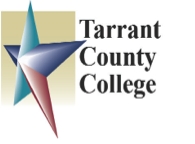







MEETINGS
Give the Gift of Christmas
IABC Fort Worth will give back this holiday season by assisting Tuesday, Dec.
11, at Cowboy Santas Warehouse, 541 N. Main St., Fort Worth (Main and Fifth).
Volunteers will bag toys in preparation for delivery. Partner up, grab a cart
and help build the perfect sack o’ Santa joy for underprivileged families. RSVP to cforester@cashamerica.com. Lunch will not be provided.
Cowboy Santas is a nonprofit program that provides toys to children, 12 and
under, from low-income Tarrant County families.
-----
Deck the Halls and Haul Out the Awards
GFW PRSA will convene in December for a special recognition of those who went
above and beyond in 2012. Also, Worthy Award Best in Show winners Sandra Brodnicki, APR, and Gigi Westerman, APR, will share a case study on their campaign for Catholic Charities’ financial education program, which was rebranded “Money School.”
Organizers promise holiday treats aplenty, even if you’ve been more naughty then nice.
Time & date: 11:30 a.m.-1 p.m. Wednesday, Dec. 12
Place: Colonial Country Club, 3735 Country Club Circle, Fort Worth
Cost: chapter members $25, national members $30, nonmembers $35, students $20;
walk-ups add $5
-----
It’s a party! Cast your gaze upward, to the hound in the hat.
=======================================================
STRAIGHT STUFF
Build your own good time at the Writers’ Guild of Texas holiday party, 7 p.m. Monday, Dec. 17, at the Richardson Public
Library, featuring the annual WGT board election, refreshments, games,
giveaways, member and guest readings, and multitudinous manifestations of
cheer.
IABC local update: Local nonprofit representatives will bring a communications challenge to discuss
at each table at the IABC Dallas “Season of Giving” luncheon Wednesday, Dec. 4. Info here. Two days later, IABC Dallas is a major partner on the 2nd Annual Jingle
Mingle, 6-10 p.m. at Gilley’s Dallas. More than 1,000 attendees are expected to help raise $30,000 for The
DREAM Fund. Info here.
PRSA national update: Highlights from the 2012 PRSA Assembly, submitted by Andra Bennett House, APR: National board. Even though the Southwest District does not have a representative on the board
(no one ran), Blake Lewis, APR, of Dallas was elected national treasurer. He will be an excellent go-to
person. • Service. The PR Serving America competition (first place $2,500) will recognize the best
pro bono community service project by a chapter. PRSSA can participate as well.
• Advocacy. PRSA submitted an op-ed to Roll Call regarding a Senate inquiry into federal
agencies and contractor payments to PR firms. The Facebook group Corporate
Representatives for Ethical Wiki Engagement advocated for being able to edit
Wikipedia for clients. The owner of Wikipedia apparently was opposed. More on
advocacy here. • Business Case for PR. PRSA wrote a Forbes op-ed for business schools on reputation management in MBA
programs. The Commission on Public Relations Education gave a presentation on
the disparity in what colleges require for PR degrees. • Membership. Current 21,378 members is down from 2008 highs but steadily climbing.
Sixty-three free webinars have been offered in 2012 to more than 6,500
participants, exponentially up from any previous time. An online
document-sharing platform is being developed (no more keeping stuff in
shoeboxes!). Issues and Trends e-mails have been upgraded to be more user
friendly. Next year, dues may be paid quarterly for a $15 processing fee. This
will be optional for chapters; it might boost the roster but could hurt cash
flow. •
Unconference. National, it was agreed, should consider redrawing districts into smaller
territories and subsidizing districts for regional conference expenses. (Some
members do not belong to chapters, yet chapters fund the districts, so these
members benefit without contributing.) Other agreeds: Districts should provide
benefit information for the chapters to use in newsletters and luncheon
announcements. Districts should help localize op-eds for chapters to submit to
media outlets in their area. •
Town Hall. Concern was expressed that the Assembly did not vote on anything except the
board slate. Reports were heard and feedback was given, but some questioned if
being there in person justified the travel expense. Prediction: Absent a beefy
agenda next year, and if the only votes taken are on board nominees, many
chapters will send proxies versus delegates unless the delegates are staying
for the conference.
PRSA local update: The 2013 Southwest District Conference, “Keep PR Weird,” will be June 5-7 in Austin at the Omni Hotel downtown. Speaker proposals must be
submitted by Jan. 31.
PRSA local update II: This month in PR/marketing history. Dec. 2, 1824: From Oct. 26 to this date, just over 350,000 Americans went to the polls to
select a president. But none of those votes mattered as much as the ones cast
Feb. 9, 1825, when the House of Representatives settled the outcome. While this
may sound suspicious (and familiar), it was entirely appropriate — except for the part that was a scam. To be elected, a candidate needed 131
electoral votes, or one more than half. Andrew Jackson led the pack with 99 electoral votes; John Quincy Adams had 84 and Henry Clay 37. Secretary of State William H. Crawford had 41 votes even though he suffered a stroke before the election that left him
partially paralyzed and unable to speak (handicaps that might help many
candidates today). The Twelfth Amendment states that if no candidate wins a
majority of the electoral vote, the House picks the winner. That might have
worked in Clay’s favor, as he was highly regarded, except only the top three candidates are
eligible for consideration, and Clay finished fourth. Surely you sense the plot
thickening. Clay and Adams were both members of a coalition that would became
the National Republicans. Jackson was in a coalition that would become the
Democratic Party. Clay persuaded his backers to support Adams, and the House
elected Adams president. Then Adams announced Clay as secretary of state, the
most important post in his cabinet. Then Jackson experienced one of his
legendary tirades and resigned from his Senate seat. Four years later, in his
re-election bid, a tarnished Adams lost decisively to Jackson. While the
election of 1824 is one of the most controversial in American history (Google “corrupt bargain”), the 1828 election is widely considered to be the dirtiest, laden with
outrageous rumors and vicious personal attacks. Historians say we haven’t seen the likes of it since, well, just about every election since.









































